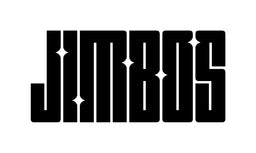How to Wash a Car With Hard Water
Hard water is the silent killer of perfect car washes. It leaves behind white spots, streaks, and dull film no matter how careful you are. In this post, you’ll learn how to wash safely in hard water areas — and the simple tricks to prevent spots before they happen.
Estimated Reading Time: ~6 minutes
What Is Hard Water (and Why It’s a Problem)
Hard water contains dissolved minerals like calcium and magnesium. These minerals don’t fully evaporate when water dries — instead, they stick to your paint and form visible white spots. Over time, those spots can even etch into clear coat if left untreated.
The higher your water’s hardness level, the faster those minerals build up — especially in warm, dry climates. That’s why washing technique, timing, and product choice are critical for hard water areas.
How Hard Water Affects Car Washing
When you wash with hard water, soap doesn’t perform as well. The minerals interfere with surfactants, preventing them from fully breaking down dirt and rinsing clean. You end up with dull panels, streaks, and residue that cling even after drying.
| Water Type | Mineral Content (ppm) | Spotting Risk | Soap Performance |
|---|---|---|---|
| Soft Water | 0–60 | Low | Excellent |
| Moderate Water | 61–120 | Medium | Good |
| Hard Water | 121–180+ | High | Poor (Soap film forms easily) |
Step-by-Step: How to Wash a Car With Hard Water
- Work in the shade: Direct sunlight accelerates evaporation, leaving minerals behind faster.
- Pre-rinse thoroughly: Flush off dust and debris before foaming to reduce mineral contact.
- Pre-soak with The Super Soaper: Apply The Super Soaper liberally using a foam cannon or pump sprayer.
- Rinse quickly: Don’t let foam dry — rinse from top to bottom in sections to prevent spotting.
- Dry immediately: Use a Massive Drying Towel or blower to eliminate water before minerals can settle.
- Apply protection: Mist Tough As Shell for added slickness and hydrophobic protection against future spotting.
Pro Tip: Use a Deionized Rinse
If you have access to a deionized (DI) water system, use it for your final rinse. DI water is completely free of minerals, meaning it dries spot-free even if left to air dry. It’s the best investment for anyone living in areas with hard water or extreme heat.
But even without DI water, a product like The Super Soaper helps minimize spotting by reducing surface tension — so water sheets off faster, leaving fewer droplets behind.
Signs You Have Hard Water
- White rings or haze on glass after washing
- Chalky residue on paint when dry
- Soap not foaming well
- Visible spots under direct sunlight, even after drying
How to Prevent Water Spots in Hard Water Areas
- Wash in the early morning or evening to reduce evaporation.
- Work in small sections — rinse and dry as you go.
- Use The Super Soaper for its self-rinsing, low-residue formula.
- Blow-dry with a leaf blower or dedicated car dryer.
- Finish with Tough As Shell to add a hydrophobic layer that prevents sticking minerals.
Soft vs. Hard Water Washing Results
| Category | Soft Water | Hard Water |
|---|---|---|
| Soap Foam | Thick and stable | Weak and breaks quickly |
| Drying | Dries cleanly | Leaves white streaks |
| Finish | Glossy and streak-free | Dull with visible haze |
Why The Super Soaper Helps in Hard Water Conditions
Unlike cheap car soaps that react with minerals, The Super Soaper uses advanced surfactants that stay stable even in hard water. This means better lubrication, safer washing, and fewer streaks — even if your tap water isn’t ideal.
When paired with Tough As Shell, your paint gains an extra slick layer that helps water sheet off instantly, leaving behind a cleaner, more protected surface.
Fight Hard Water — The Smart Way
Prevent spots before they form. The Super Soaper and Tough As Shell make washing safe and streak-free, even in mineral-heavy water.
Buy The Super Soaper Buy on AmazonRelated Reading
- Deionized Water for Spot-Free Washing
- How to Wash Without Leaving Streaks
- Pre-Soak Car Wash Method Explained
- How to Avoid Swirl Marks When Washing
- How to Wash a Car With Minimal Water
Pro Detailer’s Take
I live in Southern California — where hard water is just part of life — and trust me, I’ve seen what it can do to unprotected paint. The trick isn’t fighting it after the fact; it’s preventing it from bonding in the first place. That’s why I always wash with The Super Soaper and follow with Tough As Shell. Together, they help create a smooth, protected surface that resists spotting, even on the hottest days.
FAQs
Can I safely wash my car with hard water?
Yes — as long as you use a residue-free soap like The Super Soaper and dry immediately after rinsing.
What’s the best way to avoid water spots?
Work in the shade, wash in sections, rinse quickly, and use Tough As Shell to create a hydrophobic barrier.
Do I need a deionized system?
It’s not required, but highly recommended for spot-free rinsing — especially in high-mineral areas.
Can hard water damage my car’s paint?
Over time, yes. Minerals can etch into clear coat if left unaddressed. Frequent washing and protection prevent long-term damage.



